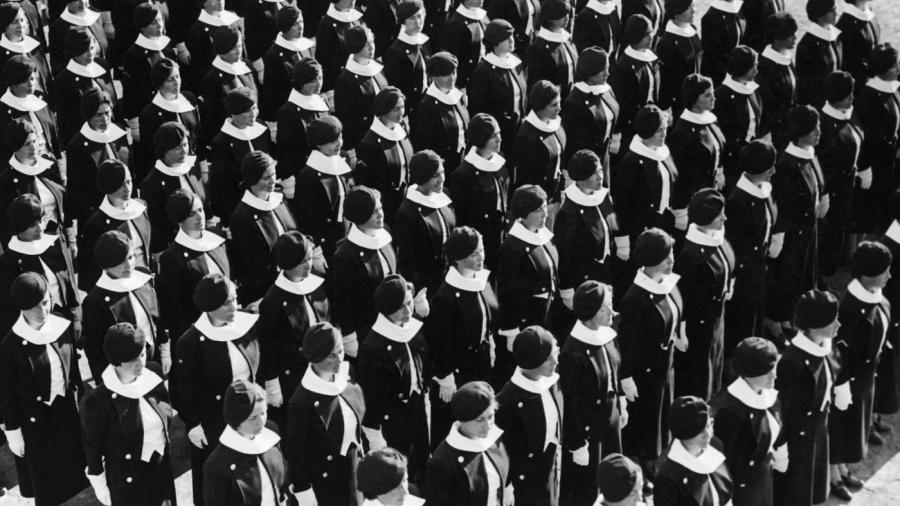What Are the Advantages and Disadvantages of Fascism?

Fascism refers to the totalitarian form of government that was popular in Europe in the early 1900s, most notably in Nazi Germany and Mussolini’s Italy; while the horrors have emerged most loudly from that part of history, the advantages of civil order were among the benefits that those people thought the rule of Hitler and Mussolini would bring to their nations.
One reason why Benito Mussolini came to power in Italy was his promise that the trains would run on time. Before he entered office, the trains were notoriously late, and if his rule had brought greater efficiency, that would have changed (although there is no evidence that it did). Totalitarian rule has the potential to create a society with a great deal of order because there is only one voice making decisions. In Hitler’s Germany, society ran quite smoothly for those who fit Hitler’s vision of an ideal citizen.
The major disadvantage of fascism is that having only one person in power means that there are no governing ethics or principles in place if that person loses stability. The saying “Power corrupts, and absolute power corrupts absolutely” takes one of its most graphic historical examples from the rule of Hitler, as he used his totalitarian power to slaughter millions of innocents and to wreak havoc all over Europe.





